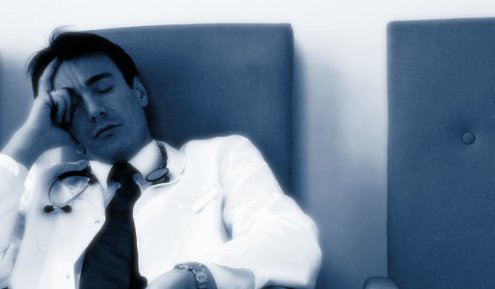
Nothing kills a good mood like a corpse taking over where a living person left off. Especially when the person was one of Clancy’s patients and they were not supposed to die.
But enough of the dead, for the time being, and on to the living.
Clancy has something of a barbed tongue. She also has a suffer-no-fools attitude when it comes to work. If someone is drugseeking or paving their own quick route to the afterlife, she is pretty quick to say so. Not to the patient, of course, but to herself or a nearby sympathetic ear. She is a genuinely compassionate person and a great doctor, but we all have our limits and working in a low-cost clinic subsidized by the state puts her face-to-face with a lot of very unfortunate people.
Not too long ago, two cop shows that I was watching broached the subject of police calousness. In each case, the officer made a somewhat crude remark about the victim in earshot of the victim’s loved ones. Tempers flared and the victim’s loved one demanded that the officer be taken off the case. In the case of the more serious police drama, the loved one was pulled aside and told, as clearly as possible, that it’s not the officer’s job to grieve. Every homicide cop grieves their first victim. By the fortieth it’s not so big a deal anymore. And that’s a good thing because it allows the officer to focus on the task at hand. And the callousness is a defense mechanism that allows then to distance themselves from the situation and approach it more objectively.
Clancy deals with a lot of drain-circlers. People that are, as mentioned above, paving their own road to death. Drug users, alcoholics, and people just off-kilter enough in the head to not be able to take care of themselves but not off enough for the state to intervene. People that can’t seem to take care of themselves or steadfastly refuse to. Seeing those kinds of people come in and out of your office unvariably takes a toll. But she has to pick the ones that she gets emotionally invested in. The lost causes are given the best medical advice she can offer and then ignore it, for the most part.
The deceased was not one of Clancy’s better patients. Less “Oh, no, what’s wrong,” and more “Oh brother, what is it now?”
But the defenses come crumbling down. Part of it is self-recrimination (“What did I miss?”), but most of it is being human and having seem someone a few weeks ago alive and knowing that they are no longer so. And the guilt of your last thought when you last saw him a negative one. And again, just being human.
As helpful as it is to provide emotional distance with self-destructive patience, it’s also important to mourn their passing. Even when – and maybe especially if – no one else notices or cares. As she struggles to regain her composure today, some day down the line she may struggle to be as affected as she now is just so that she can remember that she’s human.
It’s a struggle worth embarking on.
About the Author
3 Responses to Calloused Humanity
Leave a Reply
please enter your email address on this page.

Hmm, I’m lost. Who is Clancy? Did I not read far enough through the archives?
Come to think of it, I guess I haven’t mentioned her in a little while. Clancy’s my wife. She’s a medical resident, doctor-in-training.
My sister has had to deal with this, too, as a nurse and I have to give her a lot of credit for getting through it. It would be tough in any capacity to have to deal with death on a regular basis. I have to say that while it’s not the policeman’s job to grieve, I would say it’s their job to at least be polite and not make those kinds of comments in front of those who are grieving.